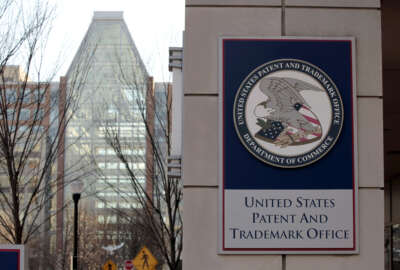To listen to the Federal Newscast on your phone or mobile device, subscribe in PodcastOne or Apple Podcasts. The best listening experience on desktop can be found using Chrome, Firefox or Safari.
- The General Services Administration published a colorful guide to a complicated issue — the ban on Chinese telecommunications gear. Section 889 of the 2019 Defense authorization bill put the kaibash on contractor use of gear from certain Chinese companies. It goes into effect in three weeks. Now the GSA has put out a two page, graphic guide to Section 889, complete with advice for contractors on how to comply, as well as links to the relevant federal acquisition regulation sections and details on the waivers process.
- Congress is concerned with the plan to deploy 810 Customs and Border Protection officers to the southern border during the pandemic. House Homeland Security Committee Chairman Bennie Thompson (D-Miss.) wants CBP to reverse the plans immediately. Thompson says he’s concerned about the health and safety risks the deployments may pose for CBP officers. The agency wants to deploy officers on two 60-day temporary assignments. But Thompson says he’s concerned about the health and safety risks the deployments may pose for CBP officers. Over 1,300 CBP employees have been diagnosed so far with COVID-19.
- Changes in delivery standards at the Postal Service draw questions from the top Democrat on the Senate Homeland Security and Governmental Affairs Committee. Sen. Gary Peters (D-Mich.) asked Postmaster General Louis DeJoy how plans to cut overtime and transportation costs fit into the agency’s upcoming 10-year business plan. The agency recently told employees it may see temporary delays in mail delivery as it seeks to cut costs. Peters also wants to know if USPS has asked the Postal Regulatory Commission for an advisory opinion on its cost-cutting strategy.
- House leaders are asking for immediate inspector general investigations into alleged abuses by federal law enforcement agencies in Portland, Oregon. The chairman of the House Oversight, Judiciary and Homeland Security committees sent a joint letter to the DHS and Justice IG’s over the weekend, saying the federal crackdown on protesters is “of the utmost urgency.” Oregon’s attorney general sued DHS in federal court last week, accusing the agency of detaining citizens without cause. The department has rebuffed requests from local officials to withdraw its officers, saying it’s responding to “lawless anarchists.” (Federal News Network)
- A well-timed move to the cloud helped the Patent and Trademark Office adjust to more employees teleworking during the pandemic. USPTO began its cloud migration in January, and it’s given the agency the capacity to move from 9,000-13,000 teleworking employees. During the pandemic, employees use about 1,200 WebEx sessions every day, and each videoconference hosts anywhere from 14 to 40 employees. Chief Information Officer Jamie Holcombe says the agency has also seen an uptick in productivity during the pandemic. (Federal News Network)
- Federal health, dental, vision, life and long term care insurance should continue with few interruptions during future shutdowns. The Office of Personnel Management has new draft regulations that deem federal health services essential during the next lapse in appropriations. Employees will be able to keep their coverage even if they’re furloughed or working without pay. The regulations also require agencies to employ the workers who process health insurance enrollment changes during future shutdowns. Employees who miss premium payments while they’re in no-pay status will make it up through back pay once the shutdown is over. (Federal News Network)
- The Pentagon has signed another contract aimed at boosting the nation’s supply of personal protective equipment. The latest award to Crosstex International should increase domestic production of surgical masks by about 100 million per year, starting next May. The award was handled in collaboration with the Health and Human Services Department, and funded by the CARES Act. (Department of Defense)
- Defense acquisition woes caused by coronavirus may not be as bad as originally thought. When coronavirus first took hold, the Pentagon thought its major acquisition programs would suffer a three month delay. However, Defense Department procurement chief Ellen Lord says the military is almost back to its normal productivity. She says keeping defense businesses afloat during the crisis and successful teleworking are to thank for that. The Pentagon is still keeping a close eye on vulnerable industries like aviation, space and shipbuilding. Lord said aviation companies that work in the defense and commercial realms were particularly hit hard by the virus. (Federal News Network)
- The Defense Department’s continued update of the 5000 acquisition series is going slower this year than expected. The 5000 series holds guidelines and policies for doing business with the Pentagon. This year DoD wanted to focus on incorporating mission engineering into programs, bettering portfolio management and using more data in making decisions. Assistant Defense Secretary for Acquisition Kevin Fahey says coronavirus response slowed down DoD’s plans for the updates. (Federal News Network)
Copyright
© 2024 Federal News Network. All rights reserved. This website is not intended for users located within the European Economic Area.





